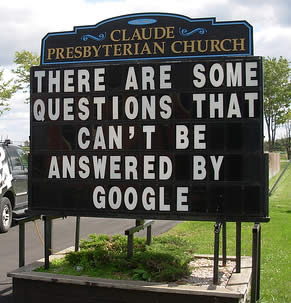Why I’m Not Planting a House Church

Image courtesy of patchworkpottery
In the past few weeks my wife and I have made the decision to start another church in the Boston area. We have been thinking through what form or expression this new church should take and we’ve come to the conclusion that it won’t be the house church model.
So what is wrong with a house church?
Nothing!
The house church model is one of many church plant models. I believe the creativity and variety that God gives us as we make disciples and start churches is a strength of God’s kingdom. House churches can be effective and can perform biblical functions of fellowship, worship, and disciple-making just like other sorts of new churches can.
I hold the house church movement in high esteem, not just because some people do them well but also because I have friends who are starting house churches and I believe God is using them in a powerful way. But, in addition to all of this love sauce that I’m pouring on the house church movement, I want to go one further: I am in total agreement with everything that the house church movement values. Values of community, authenticity, relevance, experiential faith, discipleship, etc. I even agree with the form that these values often take; that is, small gatherings and intimate settings where fellowship and discipleship can flourish. Let me go still further: I hope that our church plant will embody ALL of the positive values, forms, and expressions of the house church movement!
In short, I believe the house church movement is a valid model of church planting. I have tremendous respect for my friends in the house church movement. And, I hope our new church will embody all of the positive qualities that can be found in house churches. I should also say at this point that ANY model is subject to fail if the leadership doesn’t possess a high Christology and ecclessiology that is informed by God’s Word and God’s Spirit.
So what is missing?
I have a high regard for the house church movement, but I personally believe that something is missing. The piece that is missing is in how Jesus made disciples. I’ve accepted for years that Jesus made disciples by investing a considerable amount of time in a few men who would then go on to do the same. In that way, Jesus multiplied His own ministry. This is the discipleship model that I often hear from the house church movement. I always have a question mark floating around anytime I hear this discipleship model but I never knew how to ask the question.
Not too long ago, the question popped into my mind: “What about the seventy?” Jesus had been investing in His disciples and spending a lot of time teaching and healing the crowds and in Luke 10, Jesus appoints seventy people and sends them out in pairs “to every town and place where He Himself was about to go.” This passage immediately follows the discussion Jesus has with three would-be disciples that He turns away because He knows their hearts are not in it. In other words, it’s clear that these seventy people weren’t concerned about their own comfort or other worldly distractions. These were true disciples who would be sent out as lambs among wolves and who would rely on God’s provision for their daily needs. They were spiritual warriors to whom even the demons submitted.
Where did they come from? Jesus couldn’t have spent the same kind of time with each of these seventy people as He had with the Twelve! Instead, they must have come to Jesus and said, “I will follow You wherever You go!” just as the three would-be disciples did in Luke 9:57-62 and Jesus knew they were speaking the truth. We can conjecture that He did spend at least some time with each of them – maybe a conversation. We can also conjecture that they had heard Jesus teach and possibly been healed at His touch. In some way, their lives had come in contact with Jesus and now they would never be the same.
In other words, Jesus didn’t just make twelve disciples. There were hundreds of disciples. In fact, by the time Jesus dies and is resurrected and then ascends, the disciples get together in an upper room and there are 120 gathered together. That’s a HUGE house church!
Jesus made hundreds of disciples who were touched by Him and were taught by Him and He didn’t spend a considerable amount of time with each one personally. After the Spirit descended on Jesus’ followers, they began to speak the gospel with boldness and in one day the church grew to over 3,000 people! Again, that is a huge house church!
What does all this mean?
At one time in Jesus’ ministry, there were at least seventy committed disciples that Jesus knew He could trust to send out into the towns and advance the kingdom. These seventy came because Jesus was willing to engage the crowds and not just a few. That number grew exponentially, not incrementally. Jesus is the foundation of the church and the Spirit is the One that empowers the movement. If it were up to me and my few relationships, my town of 15,000 would never be reached. My conclusion, as I have been thinking about what it means to start a church is that I need to be relational (just like Jesus), but I also need to reach the masses and allow God to touch lives and draw them to Himself (just like Jesus).
I believe every new church leader has the desire to make disciples. I don’t question anyone’s motivation, but the purpose of this post is to think through our methods. Whatever method or model we use we must remember that every person deserves to hear the gospel! I will use whatever avenues at my disposal and that are contextually appropriate to advance God’s kingdom. I’m not saying that house church leaders don’t, I’m just explaining where I’m coming from.
Now it’s your turn. How has this prompted your thinking concerning church planting? Please be clear, this is not an attack on the house church movement. I am simply stating why we’ve made a personal decision not to plant house churches and some of the principles that led us to that decision. Thanks for your considerate response!
Small Group Disciple Making
What is the most effective environment for making disciples?
Some answer that question by thinking in terms of location (home, church, coffee shop) or size (large groups, small groups, one-on-one).
However, if those were the only two qualities of an environment (location or size) I would have to say “it all depends”. Instead, I think it is important to consider the gifting and experiences of the one who is making disciples. If a person is called to preach then perhaps a large gathering is one in which the disciple maker excels. If the disciple maker is gifted in the area of hospitality, perhaps the home is the optimum environment. In other words, the most effective environment for making disciples is determined by the skills and temperament of the disciple maker.
Having said that, I think I can answer a similar question: “What is always an effective environment for making disciples? The short answer is “in a small group setting.” A smaller setting is ideal for the majority of Jesus’ followers to exercise their gifts and show love to one another. I would go so far as to say that every follower of Jesus should be involved in a small group.
“Are All Teachers?”
(see 1 Corinthians 12)
For one thing, not everyone in the church is called to preach. Not everyone is called to fulfill the apostolic vision of church planting. Not everyone is called to teach a Bible study. Not everyone is called to be involved in Christian counseling. These are all valid ministries in the church and can be useful in making disciples, but how will the majority of people become disciple makers? After all, Jesus didn’t say, “All who are in professional ministry, go and make disciples of every nation…” Instead, Jesus challenges all His followers to make disciples.
So what will be the context in which the majority of disciples will make disciples? Will it be in the pastor’s counseling office? in the pulpit? The majority of disciple makers will make disciples in their homes, around the table, in a coffee shop, or in the park. It will be informal, rather than formal. It will be organic rather than organized. Not all are called to teach, but all are called to love.
“The Proper Working of Each Individual Part…”
(see Ephesians 4)
The small group setting also allows for the deployment of the church members to love and serve one another. The hired ministers weren’t hired to do all the caring and loving and serving of the church, they were called by God to equip the members to do the caring and loving and serving of the church. Sure, they must model and train others and sometimes that is done in a formal way but the goal is to engage everyone to do the work of the kingdom.
In a small group there may be a facilitator or group leader, but through conversation and the sharing of life, each of the members becomes a disciple maker. One member is struggling with an important decision, the other group members help her think prayerfully and carefully about that decision. Another group member has suffered a tragic loss, the other group members know him well enough to know how to care for him in the way he needs to be cared for. One group member has a theological question, the other group members help her to think Biblically about that question and they provide insight into where she can turn to find answers.
No one person is the Bible Answer Man, or the Professional Counselor, or the Life Coach. Instead, everyone in the group is able to contribute in full recognition that the Holy Spirit is there with them and is guiding the times of discussion and listening and prayer.
“Jesus took the 12 disciples aside privately and said to them on the way…”
(see the Gospels)
Finally, as I have studied through the New Testament I have seen a compelling argument for all disciples to be involved in a small group: Jesus’ first and closest disciples were a part of a small group! Jesus spent much of His time investing in twelve men who shared life with Him. I wonder if the reason we don’t spend more time with a smaller group of people is because of an American Christianity that says a one hour service once a week is enough to show our commitment to God.
The point of Jesus’ small group was to equip a few people until they were ready to be deployed to take the Gospel to the rest of the world. He multiplied His ministry through His small group. He preached to the crowds and that laid some groundwork for the disciples to later become leaders of the church. He healed and comforted and cared for thousands of people, but if it hadn’t been for His small group, Jesus’ ministry would’ve died with Him on the cross. There would be nothing left behind to prepare the world for His Second Coming. When Jesus rose and appeared to His disciples He spent 40 more days training them. He even forgave Peter for his betrayal and re-instated him as a leader.
So, I may be called to preach, and I may have some counseling skills that I can use to make disciples, but I believe small group ministry is always an effective way that any disciple can be involved in making disciples.
Related Post: The Call to Follow Jesus :: Making Disciple-Making Disciples
Most Effective Environment for Disciple Making
I’ve created a poll on my linkedin profile that asks “what is the most effective environment for making disciples?”
Please go and vote, see what others are saying, and return here to share your thoughts.
Same-Sex Marriages Repealed in Maine
Last night, Maine became the 31st out of 31 states to vote down same-sex marriage. On the other hand, six states have legislated (forced?) same-sex marriage on its constituents through the judicial branch or the legislative branch. Maine’s repeal brings the total number of states that have legalized same-sex marriage back down to five.
I also find it interesting that there wasn’t as much hype about this from grassroots organizations and churches as there was in California last year. It appears that this was a quiet victory for conservatism with not much need for controversial activism. I’ll be the first to admit that I wasn’t happy with some of the behavior by church leaders in California but here in Maine it seems that the churches in Maine were more civil and fair.
It’s also important to note that this is the first New England state that has had an opportunity to vote on same-sex marriage and it was turned down. Four of the six New England states allow same-sex marriage but only because of judges and politicians, never by a state-wide vote.
So, here are some questions for ChurchETHOS readers:
Are Americans living in the Dark Ages or the Enlightenment on this issue? Is same-sex marriage a civil right or not? Has the church responded appropriately to this social issue? How has the church conducted itself in Maine (respect, fairness, intolerance, etc.)? How SHOULD the church wrestle with the issue of same-sex marriage (personally, publicly, politically, pastorally, etc.)?
Please be respectful in your comments whether you are in favor of or oppose same-sex marriages. I will delete your comment if I find it offensive to people on either side of this issue. Therefore, if you want your voice to be heard find a way to do it with respect and grace.
Here are some news stories:
The Call to Follow Jesus
I think a question church leaders need to be asking is, “What aspects of Jesus’ relationship with His twelve closest disciples were meant to be universal to all of Jesus’ disciples?”
We know that some things are probably going to be a bit different two thousand years later in our modern society. Most of us aren’t going to be asked to abandon our businesses, leave our families for months and even years on end to travel the dusty countryside and not know from one night to the next if we are going to be sleeping in a random person’s home or sleeping outside with a rock for a pillow.
On the other hand, in many of our churches today, the most that people are asked to commit to by church leaders is to attend a large gathering for one hour a week and tithe so that we can pay the light bill.
Radical discipleship for us today doesn’t really look like either of the above scenarios. We often consider the relationship that Peter, James and John had with Jesus, but we forget about Lazarus, Mary, Martha, Bartimaeus, Susanna and Joanna. These were men and women whose lives were transformed by their encounter with Jesus but it didn’t compel them to be with Jesus every minute of the day. More importantly, it didn’t compel Jesus to ask them to have the same relationship with Him that the Twelve had. In other words, they weren’t invited to spend the next 2 or 3 years wandering around with Jesus.
Of course, church leaders today aren’t promoting that sort of commitment anyway. Today, it is more common to bend to the lowest common denominator. A weekly service, a challenge to give to the church and to the needy, a 15 minute quiet time, and be a good father, mother, husband, wife, and don’t cheat on your taxes. We don’t do too good a job asking people to go deeper in their commitment because we don’t really know what that means.
Oneness
So what was it about Jesus’ relationship with His twelve closest followers that we are meant to continue today? When Jesus prayed for His disciples in John 17, He asks the Father that He protect them (from stumbling?) “so that they may be one as We are one.” Then, for all disciples, He prays the same thing: “May they all be one, as You, Father, are in Me and I am in You. May they also be one in Us, so the world may believe You sent Me.” (17:21) A relationship with God and with each other takes time. It takes sacrifice. It takes love. Certainly, in my marriage, I don’t leave it at one hour a week. Relationships take effort and we are asking way too little if all we are asking is a couple of hours a week.
But relationships aren’t scripted either. That’s why we can’t say that a disciple is more committed if she shows up at the church building 10 hours a week rather than 3 hours a week. We need to help people “practice the presence of God” and show a willingness to get together with other believers. Invite a couple over for dinner. Meet someone for coffee. Volunteer together at the homeless shelter. Gather for Bible study and prayer at someone’s home. Be consistent. Be available. Do it because you love your family and want to know how to pray for them.
The universal call to discipleship may not look exactly like the Twelve, but it is every bit as radical and transformational. It affects how we work, how we play, and how we live. For some, it may involve more time than we are currently giving, but for others it may simply be the quality of time spent that needs to change. The most important thing is that we are in relationship with God and with the Body and Jesus prayed that we would all be One. Oneness won’t happen with the back of someone’s head, it happens face to face.
Related Post: Making Disciple-Making Disciples :: Subscribe
Spiritual Discipline
 Spiritual discipline doesn’t sound very exciting. Many Christians shy away from the disciplines because it sounds like work at best and legalism at worst. However, spiritual discipline is simply a name for the spiritual habits that a true follower of Jesus forms as he or she becomes more like Him. We want to follow Jesus and we know that He meditated on Scripture, spent time in prayer, and shared the Gospel with others, just to name a few. There are other disciplines that we can glean from the Bible that are important to consider as well.
Spiritual discipline doesn’t sound very exciting. Many Christians shy away from the disciplines because it sounds like work at best and legalism at worst. However, spiritual discipline is simply a name for the spiritual habits that a true follower of Jesus forms as he or she becomes more like Him. We want to follow Jesus and we know that He meditated on Scripture, spent time in prayer, and shared the Gospel with others, just to name a few. There are other disciplines that we can glean from the Bible that are important to consider as well.
But for the most part, these disciplines go neglected by the majority of church attenders. Does that make their Christianity suspect? No, it probably means that no one helped them to see the positive aspect of a disciplined life of faith. When we form regular habits, we need accountability. It’s the same thing when we form spiritual habits.
As a child I learned that I needed to brush my teeth, make my bed, not eat dirt, etc. No one would think my parents unfair or cruel for making me obey. Those were habits that my parents helped me form when I was a child. The disciplines are habits and we need help forming them in our lives. Not too many people have the inherent motivation to form a strong habit for themselves. As a child we had our parents help in showing us the habits that needed to be formed and the habits that needed to be broken. In our spiritual habits, we have the Body of Christ to help us but it takes initiative and responsibility on our part to come alongside immature believers and help them move toward spiritual maturity.
Pastors play a large role in equipping the saints and part of the equipping process should be the formation and spiritual growth of new believers. In order to be effective at fostering a Biblical understanding of the disciplines, the church leaders should first of all teach about them in a positive way. Secondly, leaders should model the disciplines and coach others in the process. Third, we should encourage accountability and fellowship in the Body so that there is a consistent venue for people to talk about their progress or lack thereof in a safe and open setting. Finally, we need to talk about the perils of not engaging in the disciplines. Dallas Willard talks about the cost of NONdiscipleship (rather than Bonhoeffer’s ‘Cost of Discipleship’). When we reject the foundational habits and activities of the Bible, we forsake the abundant life that Jesus has promised us.
So, we need to talk about spiritual disciplines, model them, hold people accountable to do them, and contrast the difference between a disciplined and an undisciplined spiritual life so that people can understand that these are not legalistic endeavors, but that they are helpful and fulfilling as we diligently follow our Master.
My 9 Minute Video to Church Leaders for 9/9/09
Today is September 9th, 2009 and leadnet.org is doing a great all day online conference for church leaders. They asked these globally recognized leaders the following question: “If you had 9 minutes to address thousands of church leaders what is the one issue you would want to impart to them.”
Well, I’m not a globally recognized church leader, and thousands of people won’t be watching my video, but I felt inspired to share my own thoughts. Some of it is based on my previous post about Making Disciple-Making Disciples, but it is from a passion to see us accomplish the mission Jesus set out for us to do.
The question I’m asking in my video is: “Are you as a church leader involved in making disciples?”
Please pass this video on to other church leaders if you find it helpful.
Making Disciple-Making Disciples
 Making disciple-making disciples (or making DMD’s) seems rather redundant. Yet, in practice, very few are doing it. Making DMD’s is what Jesus told us to do in Matthew 28:18-20. Instead, many church leaders interpret the commission to “make disciples” in one of two ways. Some “make disciples” by making converts and then telling them to attend a church service. Others gather converts together and attempt to “go deeper” but place no emphasis on being a witness to their neighbor. This is the danger of separating evangelism and discipleship. The former is engaged in evangelism, the latter is engaged in what he or she believes to be discipleship.
Making disciple-making disciples (or making DMD’s) seems rather redundant. Yet, in practice, very few are doing it. Making DMD’s is what Jesus told us to do in Matthew 28:18-20. Instead, many church leaders interpret the commission to “make disciples” in one of two ways. Some “make disciples” by making converts and then telling them to attend a church service. Others gather converts together and attempt to “go deeper” but place no emphasis on being a witness to their neighbor. This is the danger of separating evangelism and discipleship. The former is engaged in evangelism, the latter is engaged in what he or she believes to be discipleship.
Discipleship Training or Transforming Disciples?
Our “discipleship training” has become merely a class or a Bible study that helps us grow in our knowledge about God but it doesn’t always encourage us to live for God. Making DMD’s is a much more robust commitment to the spiritual transformation of another. When Jesus told His disciples to go and make disciples, He was literally telling them to make disciple-making disciples. Just as He invested in them, now they were to invest in others.
Matthew 28:20 says to teach the disciples to obey (or “observe”) all that Jesus commanded. Paul reminds us of this concept in 2 Timothy 2:2 which says, “And what you have heard from me in the presence of many witnesses, commit to faithful men who will be able to teach others also.” Of course, this is not the definition of what it means to make disciples because Paul is only talking about teaching “what you have heard”.
Making DMD’s isn’t just about teaching, it’s about a lifestyle that invites others into your life. In 1 Corinthians 11:1 Paul says, “Be imitators of me, as I also am of Christ.” This goes beyond the important teaching aspect to the equally important but much more vulnerable lifestyle of making disciples. Sermons, seminars, and classes need to be extra-curricular to the more risky and time consuming core curriculum of modeling a transformed life in front of others.
Reproducible DMDs
So what does it mean to “make disciple-making disciples”? The point of stating it redundantly is to emphasize the necessity of reproducibility. Disciples make more disciples but non-disciples don’t make disciples. But understanding what making DMDs is all about is like trying to explain swimming to someone who has never been in a pool of water. The best way to do it is to jump in and splash around. There are some principles and theories about how to do it but if you understand that the goal is to make disciples who will then make more disciples there is at least more motive for making DMDs in the first place.
Once you have the motivation for reproducible disciple making, the how-to becomes clearer. For example, in order for discipleship to be reproducible it can’t be specialized. The leadership training and scholarship of a seminary student is important and certainly plays a role in the body of Christ but it can’t really be referred to as disciple making. Making DMDs is much broader and less specialized. It should be universal to all followers of Jesus. There is no dichotomy between Christians and disciples. Instead, all who desire to follow Jesus will be compelled internally to share Jesus with others; mostly for their love for Him, but also because He commanded it. Anyone unwilling to make disciples as Jesus commanded cannot truthfully consider himself a disciple.
Being a seminary student or a pastor or any other church leader doesn’t automatically mean you are a DMD. Stated in another way, seminary students need to not only engage in their seminary studies, but also need to engage in those activities that are universal to all followers of Jesus. The same goes for pastors and other church leaders. This is just one example of what can be gleaned by understanding that the goal of disciple making is reproducibility. We haven’t defined what making DMD means, we’ve just narrowed it down by shaving off what it is not. Not everyone calling themselves Christian is truly making disciples.
Responsible DMDs
It could be said at this point that making disciple-making disciples should be the goal of all disciple making activity. It should further be stated that it is the responsibility of all followers of Jesus to be involved in making DMDs. The seminary student might happen to be studying Greek and translating passages of Scripture (a worthy and important activity) but she must also be involved in making DMDs. An Administrative Pastor might be responsible for the finances and logistics of a church but he must also be involved in making DMDs. A musician might do her best to learn the guitar and play it well for God’s glory but she must also make DMDs.
These should all be true much like it is also true that a business person or a stay-at-home mom or a consultant must make DMDs if he or she desires to follow Jesus. For some reason, though, our church leaders aren’t even involved in this most fundamental activity in the Kingdom. Jesus told His disciples to make disciples, it follows then, that to follow Jesus we will also make disciples and equip them to make disciples. Those first disciples did what He commanded and that has been the method God has used to advance His Kingdom for nearly 2,000 years.
Making DMDs goes beyond calling people to the least common denominator of devotion. Jesus’ call was to radical commitment, so why do we call people to a fraction of that commitment? Worse: why do we as church leaders often model a fraction of the devotion and commitment that should be inherent in the life of any Jesus follower. It’s like we’re selling life insurance rather than showing someone how to live the transformed, vibrant, abundant life that Jesus offers. Jesus doesn’t offer life insurance, He offers a new life. Making disciple-making disciples is about calling people to live that radical new life and walk along the Way with Jesus while simultaneously inviting others to walk alongside.


















2 comments